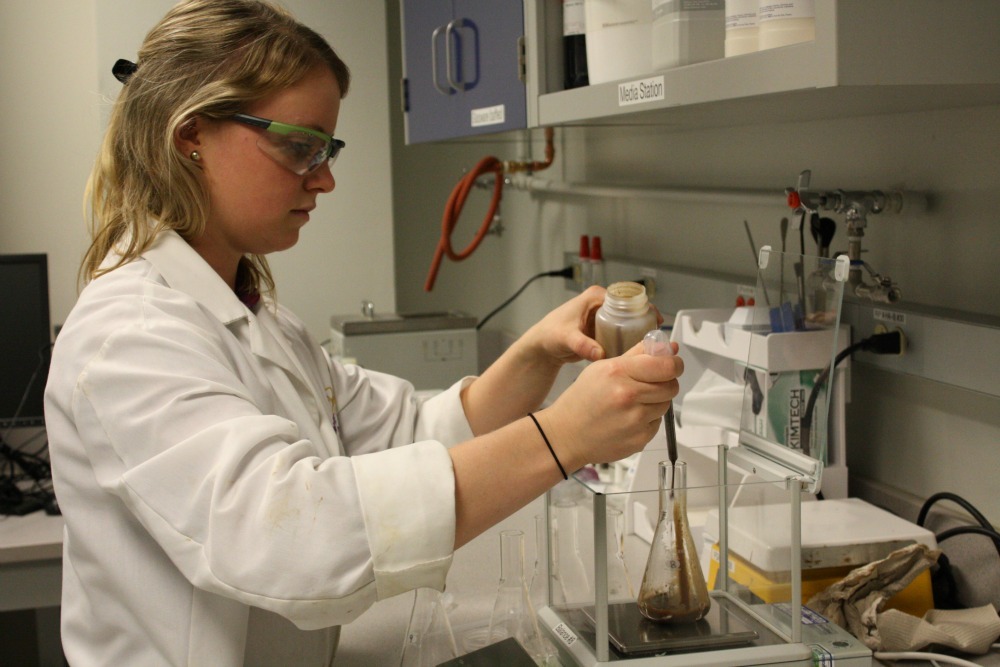DOE award will help Novozymes develop more efficient enzymes



Novozymes
January 9, 2013
BY Holly Jessen
A U.S. DOE award of up to $2.5 million will help Novozymes identify new and efficient enzymes to produce advanced biofuels and chemicals from corn stover—including cellulosic ethanol.
Novozymes is partnering on this with MBI International. The project to screen natural enzymes for the best performing varieties will be ongoing for the next two years. The enzymes will be tested on pretreated agricultural waste for conversion to sugars, followed by other bio-based products. “It’s not limited to ethanol although I think ethanol is a very promising near term candidate,” Sarah Teter, bioenergy and protein optimization scientist, told Ethanol Producer Magazine.
Advertisement
Advertisement
The project will utilize MBI’s pretreatment technology, Ammonia Fiber Expansion. “We will be working very closely with them to tailor an enzyme cocktail that works well on that pretreated material,” Teter said. AFEX was an invention of Michigan State University professor Bruce Dale. The technology can be used on a variety of cellulosic feedstocks and is “compatible with high solids enzyme and fermentation processing, produces minimal waste streams, and operates under relatively mild conditions compared to other pretreatment methods,” MBI said on its website.
Receiving the DOE award is exciting for two reasons, Teter said. First, it will help Novozymes further its research. Secondly, it offers the company a way to externally validate its progress, as the DOE requires it to meet certain performance targets, as evaluated by a government lab. “That independent evaluation is very valuable,” she said.
Advertisement
Advertisement
Novozymes has received two other DOE awards for bioenergy enzyme development. The company worked on a bioenergy project as a subcontractor to National Renewable Energy Lab. The $13.8 million award was used to help pay for work done from 2001 to 2005. From 2008 to 2012, Novozymes utilized a $12.3 million DOE award to develop a commercial-ready enzyme application system for the ethanol industry.
The award, which was announced Jan. 3, is one of five projects that will receive a total of $10 million.
Related Stories
CoBank’s latest quarterly research report, released July 10, highlights current uncertainty around the implementation of three biofuel policies, RFS RVOs, small refinery exemptions (SREs) and the 45Z clean fuels production tax credit.
The USDA significantly increased its estimate for 2025-’26 soybean oil use in biofuel production in its latest World Agricultural Supply and Demand Estimates report, released July 11. The outlook for soybean production was revised down.
U.S. fuel ethanol capacity fell slightly in April, while biodiesel and renewable diesel capacity held steady, according to data released by the U.S. EIA on June 30. Feedstock consumption was down when compared to the previous month.
XCF Global Inc. on July 8 provided a production update on its flagship New Rise Reno facility, underscoring that the plant has successfully produced SAF, renewable diesel, and renewable naphtha during its initial ramp-up.
The U.S. EPA on July 8 hosted virtual public hearing to gather input on the agency’s recently released proposed rule to set 2026 and 2027 RFS RVOs. Members of the biofuel industry were among those to offer testimony during the event.
Upcoming Events










